Group Leader
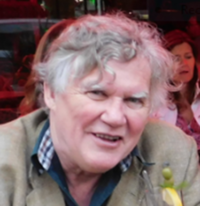
Prof. John N WOOD
John N Wood trained as a virologist at the Institut Pasteur with Luc Montagnier, before spending 12 years in industry at the Wellcome Foundation and the Sandoz Institute. In 1994, he began his genetic studies of pain pathways at University College London with Armen Akopian, by cloning genes expressed only in sensory neurons, which were therefore likely to be important in pain pathways. They identified a new sodium channel, Nav1.8, and an ATP-gated ionotropic receptor P2X3, as well as genes encoding Advillin, PIRT and a range of sensory neuron-specific proteins that have been extensively studied by the pain community. More than 1000 composition of matter patents have been filed by Pharma on analgesic drug targets derived from these studies. P2X3 antagonists are awaiting FDA approval (2022) whilst Nav1.8 antagonists that are more effective than opioids are in phase 3 clinical trials. He was the first to exploit tissue-specific gene deletion in sensory neurons and thus showed that another sodium channel, Nav1.7, was a key element in mouse peripheral pain pathways. Further studies with Geoff Woods and James Cox showed that Nav1.7 was essential for human pain. In mice and humans, Wood has demonstrated that Nav1.7 loss enhances endogenous opioid action. Nav1.7 is required within the spinal cord for neurotransmitter release. This has profound significance for drug development. In recent work, Wood has focused on neuroimmune interactions, gene therapy, the wiring of the peripheral nervous system and the function of subsets of sensory neurons in distinct pain syndromes. He was elected to the Royal Society and won the Grand Prix Scientifique of the Institut de France in 2009.
Group Members
Scientists

Dr. Jing ZHAO, Senior Lecturer
My study is focused on sensory transduction and transmission in peripheral nervous system, especially in pain signalling. I use gene targeting in/transgenic mice as a model, combining molecular biochemistry, electrophysiology and behavioural approaches to identify the genes or molecules involved and to understand the molecular, cellular physiological and pathological mechanisms involved. I am currently investigating: 1) the trafficking of sodium channel Nav1.7, 2) the role of BDNF in chronic pain, 3) the function of microRNA in pain signalling and 4) the role of sodium channel Nav1.8 in cardiac conduction.
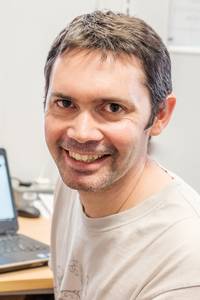
Prof. James COX
I am Professor of Human Pain Genetics and Deputy Graduate Tutor for the Wolfson Institute for Biomedical Research. I graduated from the University of Birmingham in 2001 having studied Medical Science, specialising in cell and molecular biology. I then studied for my Ph.D. in human molecular genetics at the University of Cambridge. Following my Ph.D. I carried out post-doctoral research under the supervision of Prof Geoff Woods in Cambridge and Prof John Wood at UCL. In 2011, I was awarded an MRC Career Development Award to establish my own team at UCL and as part of this research study we identified mutations in genes for inherited pain insensitivity disorders, such as ZFHX2 and FAAH-OUT (see MadeAtUCL Podcast). We are currently developing gene therapy approaches to help treat people with chronic pain disorders. I have a keen interest in the endocannabinoid system and the biology of non-coding RNAs.

Dr. Andrei OKOROKOV
Pain is a major clinical problem and affects more people than diabetes, heart disease and cancer combined. Pain is a cofactor in many medical conditions yet pain medicines are often only partially effective, and the problem is increasing with an aging population. By understanding the cellular and molecular processes that lead to the sensation of pain, more effective targeted therapies can be developed to alleviate suffering. One way of doing so is analysing genetic conditions in which patients have altered levels of pain sensitivity, in particular the cases where pain sensitivity and perception are diminished. Identifying human genes, which are responsible for such a phenotype and their functional products, allows us to pinpoint the key players in the chain of molecular events providing for pain sensation. After two decades of work in transcriptional and post-transcriptional regulation of tumour suppression (p53 field), I am now establishing a new research direction into the transcriptional and post-transcriptional regulation of pain pathways.
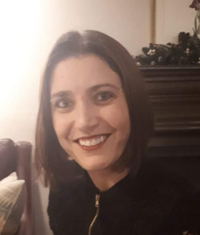
Dr. Ana-Paula LUIZ
I started my scientific life in Florianopolis - Brazil at the Federal University of Santa Catarina (UFSC) where I received my PhD in Pharmacology (2011). Since 2013 I have joined the Molecular Nociception Group where I work with different animal models of acute and chronic pain. My main projects are the discovery of new targets for pain induced by knee osteoarthritis in mice and the discovery of modality specific pain targets through the use of in vivo GCAMP imaging of peripheral sensory neurons.
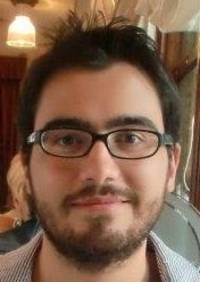
Dr. Federico ISEPPON
I am a scientist from Italy: I graduated from University of Pavia and got my PhD from the International School of Advanced Studies (SISSA) in Trieste. My primary scientific interest lies in the Neurosciences. My career focus is to make an impact in the understanding of the mechanisms that govern peripheral sensation, their change in pathological or painful status, and how drugs can target specific pathways or molecules to ameliorate these conditions. Currently I am studying the mechanisms underlying the peripheral effect of gabapentinoids on neuropathic pain models using in vivo Calcium Imaging.
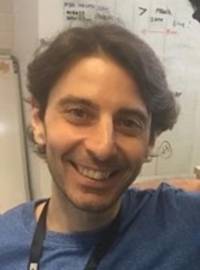
Dr. Manuel ARCANGELETTI
I received my BSc in Biology and MSc in Neurobiology at Sapienza University of Rome. My Ph.D. is in Neurobiology from SISSA in Trieste under the supervision of Prof. Vincent Torre, where I studied the gating and permeation mechanisms of CNG channels. In 2016, I started a postdoc at the University of Oxford with Prof. Stephen J. Tucker, where I studied the mechanism underlying gating in K2P channels. I joined Prof. John Wood's Laboratory (Molecular Nociception group) in 2019 to study the functional properties of ASIC channel mutants associated with pain diseases. My work focuses on characterising the mutations by using a mean of electrophysiology, molecular biology and behavioural studies.
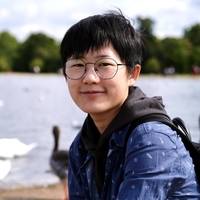
Dr. Naxi (Arki) TIAN
I graduated from Peking University with BSc in Medical Science and continued to study there to obtain my PhD in Medical Neurobiology. I am experienced in electrophysiology studies, pain-related surgeries, behavioural studies, calcium imaging, molecular and cellular biology. I mainly focus on studying the mechanism of chronic pain and neural regeneration after nerve injury and have also participated in several projects including neural circuit and neural development research during my PhD study. Right now, I am working on gene therapy options to genetically manipulate pain-related ion channels for pain relief in the Molecular Nociception Group. I am looking forward to studying the function of different cell type- and input- specific neural circuits either in peripheral or central nervous system and have great passion in translational medicine.
Technical Support
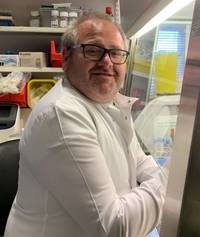
Mr. Sam GOSSAGE
As Laboratory Manager my main role alongside conducting research is to ensure the smooth running of the scientific service functions within the Laboratory, leading the delivery of services in strategic and operational matters and providing advice, guidance and support on a wide range of administrative issues within the group.
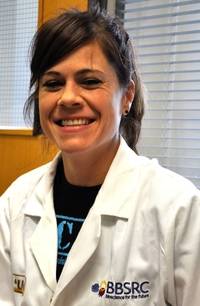
Miss. Sonia SANTANA-VARELA
I hold a MSc in Biochemistry and am a final year PhD student. As a nociception group supporting member, my main role is the study of potential pain genes in mouse models of pain and pain-like syndromes.

Miss. Queensta MILLET
Students

Miss. Rayan ABDALLA
I graduated with a BSc Pharmacy degree. Following that, I obtained an MSc degree in Drug Discovery Skills at King’s College London (UK). I am currently studying the mechanisms and potential treatments for cancer-induced bone pain.

Miss. Clarissa BUTTI
I am from Lecco, a beautiful city in the north of Italy. I got my MSc degree in Medical Biotechnology at Università Vita-Salute San Raffaele in Milan. I have joined this Group for my PhD, in which I am studying mechanisms and treatments of Osteoarthritis Pain.
Other career-oriented interests are teaching and acting as a Patient Ambassador. Outside work, I have a strong passion for fitness and hiking.

Miss. Janvi PATEL
I am a fourth year MSc Biochemistry student undertaking my masters research project at the Wolfson Institute for Biomedical Research. Supervised by Dr Andrei Okorokov, I am researching the expression of genes responsible for the pain insensitivity phenotype in order to better understand the molecular mechanisms behind pain sensation.
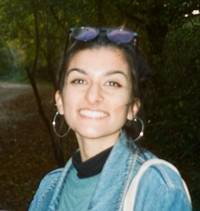
Miss. Sana ZUBERI
I am a biochemistry student at UCL currently doing my Master's. I joined the Molecular Nociception group for my research project this year. I hope to continue my career in research in the future, particularly in biomedical research, focussing on molecular mechanisms.
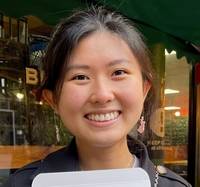
Miss. Swee Leng LEE
I am a final year BSc Biomedical Sciences student doing my lab research project at the Molecular Nociception Group. I am supervised by Rayan and am currently looking into the role of nerve growth factor (NGF) in the sensitisation of DRG neurons.
 Close
Close

